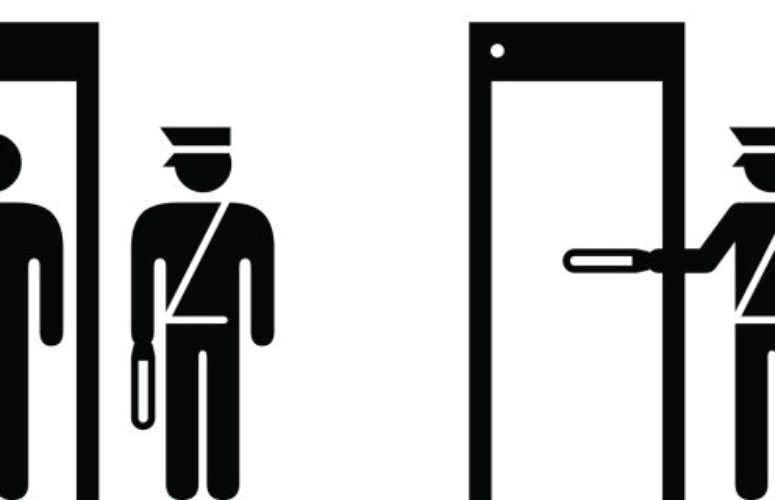
Women and Corporate Leadership
Women executives provide tips and advice for aspiring professionals.
By George N. Saliba, Managing Editor On Aug 28, 2015Women hold 52 percent of all professional-level jobs, yet there are proportionately far fewer women in C-Suite positions (CEOs, CFOs and COOs, etc.). The reasons for this difference are often fiercely – and passionately – debated. Does this scenario stem from the remnants of the United States’ past, when women were once denied even the right to vote and faced other gender-based hurdles? Are male leaders short-changing women at this time? Do some women lack access to top-tier networks, which have historically been male dominated?
Nonpareil female executives interviewed by New Jersey Business magazine sometimes have deeply held – and rather personal – beliefs regarding why there is a lack of women in the C-Suite, and why there are not as many women serving on corporate boards, when compared to men.
The answer is not definitive.
At one end of the spectrum, one interviewee firmly states, “I have been in business for over 30 years, and I actually have not felt a sense of discrimination for women in the United States.” Yet, another interviewee opines, “My biggest challenge was that I was viewed differently, because I was a woman. And there were very few women who were principles or partners, at that time.”
Change is in the Air
Providing one bird’s-eye view is Caren S. Franzini, president of Franzini Consulting, LLC, a firm which provides strategic assistance with real estate development projects; identifies local, state and federal incentives to fill funding gaps; and assists economic development organizations with their development and review of programs and projects. Franzini prominently served as the CEO of the New Jersey Economic Development Authority (NJEDA), from January 1994 until October 2012.
Regarding why there are few women on corporate boards, for example, she says, “I wonder that sometimes myself. I think one of the main reasons is timing. Now is the time for there to be more women on boards. When I started in business school in 1982, there were very few women in business school. And if you even go back another 10 years before that – in the early 1970s – there were very, very few women in business, in legal professions and in finance, which are a lot of the qualifications you need to be on a corporate board. In my generation of women, who are women now in their mid- to late-50s and early 60s, we are some of the first women in business, finance and legal, and now have the experience.”
Franzini adds, “You almost need 30 years of experience to be on a board. Because on a board, you want to have the business acumen, the business experience, to really be able to give advice and to have lived through running a company, or being in the C-Suite of a business. So, now we finally see a lot more women in the C-Suite than we did even 10 years ago. I think we are now catching up, and I am hearing even from men who approach me say, ‘Do you know women who can be on our board? I really need someone who is a CPA, who has 25 years of experience and who has these qualifications.’”
Franzini says, “My hope is now that we have more women in senior positions in companies, we will start to see more women on boards. And once you have one woman who has her network of women, she will tend to recommend other strong women to join her on the board.”
At a Personal Level
With more than 25 years of banking experience, Brenda Ross-Dulan is an executive vice president and Southern New Jersey region president for Wells Fargo, overseeing 150 community banking stores and $12 billion in deposits.
Speaking about the corporate world and advice for navigating it, she says, “For me, being a woman, and also being an African-American woman, I certainly sometimes feel the burden when I walk into the room, that somehow, in someone’s mind, there is a question about: ‘Does she belong here?’ The reinforcement of whether or not I belong there; I have got to get grounded in that, because when I walk in the room, sometimes others are asking the same thing.
“One of the things that I learned early on – and I would also say I learned later in my career – was the tremendous pressure that you can put on yourself, to feel that everything you do actually has some impact on women in general, and African-Americans, in general.
“You really do have to get to a point that when you walk in the room, you walk in the room as Brenda. I have to be responsible for the excellence that Brenda brings to the table, and recognize that I can’t carry the burden that I can’t make any mistakes. Not making mistakes, and revealing that you do make mistakes, then limits your own growth, and your ability to share with your team the power of making a mistake and improving upon it.”
Michele N. Siekerka, Esq. is the eleventh president of the New Jersey Business & Industry Association, having previously served as Deputy Commissioner at the New Jersey Department of Environmental Protection. Recalling her own career, in a somewhat similar vein, she says it was important, “to not be intimidated, and to trust in my abilities.”
She explains, “When I was a young lawyer, I would walk in on a motion Friday, and there were all the men in the dark suits, and there was me. I had to take a breath and trust that my abilities afforded me to be there, so I couldn’t be intimidated by the surroundings. I think that convincing myself that it was okay to be proactive, and to ask for opportunities [was important]. That is not an easy thing to do. But, again, when you trust in your own abilities and you build your confidence, that allows you to be very comfortable in being proactive about asking for opportunities.”
Candace L. Straight, an independent director of corporations and film producer, recalls a time in her career when she was not immediately promoted, but her company realized its error, and soon did promote her.
She says, “You do have to speak up for yourself, but [also] understand the politics of it. And if I had talked to [that] boss about not getting that promotion, and he had told me, ‘Candy, this is just the way we do things …,’ I probably should have left. But, when I talked to him, he instead said, ‘Candy, we probably made a mistake.’ So, there are times when you have to pack up your bags and leave, and other times when you have to promote yourself and tell them that you have thought: ‘I love being here, but I think I was the best qualified.’”
Erin M. Hamrick, founding partner, Sterling James, LLC, has 18 years of experience as an executive search consultant. Prior to co-founding Sterling James in 2014, she served as a partner with the insurance practices of both Heidrick & Struggles and Spencer Stuart. During this time, she also took a year sabbatical to work for the US Department of Defense, supporting reconstruction efforts in Iraq.
Hamrick says, “I spoke at an industry conference. And the quote is, ‘You don’t ask; you don’t get.’ And the worst thing that can happen is that someone says ‘no’ to you. But, if you never ask, you are not going to get anything. And you have to ask for the money; for compensation. You have to ask for the promotion. You have to ask for the project. You have to ask for things that you want, because you can’t expect anybody to give you anything simply because you are nice and you do a good job.”
Collaboration Cornerstones
Celestina S. Quintana emigrated from Spain to the United States when she was 10 years old and was raised in Newark with eight brothers and sisters. After working as a dental assistant and then operating a clothing store, today she owns 11 McDonald’s restaurants in Jersey City, Newark, Irvington, East Orange and Parsippany. Her restaurants employ more than 500 local residents.
She says, “Whether it is women or it is men, [it is important] to surround yourself with good people; knowledgeable and kind people. You learn so much from people who have wisdom. As they say, ‘A smart man learns from his mistakes, and a wise man learns from the mistakes of others.’ Therefore, just surround yourself with good people. And if you are in a ‘good basket,’ with ‘good apples,’ you will become a good apple. If you surround yourself with rotten apples, you will become a rotten apple. Again, surround yourself with wholesome people. It doesn’t matter what roads they have traveled.”
Down to Business
As for Caren Franzini’s advice for success? She says, “Be over-prepared and work hard. My father always told me: Before going to any meeting, make sure you have the votes. You need to know who is sitting around the table, understand their backgrounds, maybe even ‘Google’ people today, to understand them. So, know your audience, be prepared and work hard.
“A second one is: Ask others for their advice and guidance, be it members of your team or business associates, because it will do two things: First, you can learn something from them. You are going to get an idea, and, second, you are going to understand where they are ‘coming from.’ Next time, when you need their support, you’ll have it. And I found this [to be true] when working with the Legislature: If I had to testify, I wanted to make sure I spoke to some legislators beforehand, because I wanted to understand what their concerns or interests were, regarding EDA (The New Jersey Economic Development Authority), and what their ideas were. I understood them and I learned something from their backgrounds. By the time I had to appear before them, or get assistance from them, I knew where they were coming from, and they knew me a little bit, too. Asking others for advice and help is a win/win.”
Frazini’s third piece of advice is to understand one’s competition and customers, while a fourth is the importance of creating a strong team and culture within an organization.
She concludes, “The final thing is to give back. No matter where you are as a CEO or as a business owner, you have to give back to your community; you have to sit on not-for-profit boards; you have to volunteer. Great leaders can be great leaders for your business, but also for your community. And that’s where we really make a difference.”
Navigating the ‘Jungle Gym’
Cynthia Hamburger has more than 25 years of leadership experience and today is chief operating officer and chief information officer (CIO) for Learning Ally, a 65-year-old, national non-profit delivering products and services for students with print disabilities. Hamburger participated in a New Jersey Business joint interview with Leanne Leonard, who has more than 25 years of human resources experience, and – since 2009 – has been a senior consultant and executive coach.
Regarding what qualities women must possess – and what actions they must take – to reach the C-Suite and stay there, Hamburger echoes the sentiments of others when she says: “There are long lists of qualities and actions. But, let me just give a few, that for me, have consistently proven to be successful. There’s not one formula that fits every equation. But, what’s been very successful is always surrounding myself with the best people. And Leanne is my HR partner, who is fundamental in always challenging me to do that. It is also important to have a support structure, which includes coaches, mentors, family – whatever else is part of a person’s support structure that is constantly giving you open and honest feedback, along the way.
“A third and fourth: The importance of your network, and always connecting the dots of those in that network, nurturing it, and letting it nurture you. Then, the last one that I would put out there is: To very deliberately manage your career. You don’t get to the C-Suite, and you don’t stay in the C-Suite, by accident. It’s a very deliberate managing of your career, and it is not a straight line; it can be a very crooked line.”
Leonard adds, “Yes, it is not a ladder, it is a jungle gym, which really says that you don’t necessarily move up, up and up. Sometimes you take lateral moves, because it will develop your skill sets in the particular area that you may need.”
Meanwhile, Candy Straight says, “I would say to women: Do set aside a 10-year plan. You can always change it, but think ahead: Where do I want to be in five years? Do I still want to stay with this corporation? And in what area do I want to be? One of the things that I asked at Merck, when they were interviewing me, was: ‘You are hiring me to be director of investments, because I have managed money. Well, will I have an opportunity to do something other than be director of investments? Will you pigeon-hole me in that?’ And Merck said, ‘No, no, no. We’ll give you a broad array of financial background, if you turn out to be a good employee.’ And they did: They sent me over to mergers and acquisitions. I was director of borrowing, for a while. I was the chief financial officer of the division, for a while. I was always in the finance area, but they did move me around, and give me opportunities for growth and advancement.”
Leadership
Regarding the values, behaviors, skills and characteristics women need to reach the board / executive level, Mary Alice Williams, anchor, NJTV News, says, “Women need to have a vision that is greater than the task at hand. They need to have a qualifying vision, so: Make the ‘widget,’ but provide something that will create opportunities for a broader community. They have to be able to create opportunities for others within their own organization, and support that. They need to always lead from the front. I call it servant leadership, because I was trained by the Jesuits. That’s when you really are providing [employees] with the opportunity to do their jobs, and then getting out of the way and letting them do it. Never ask somebody to do something you are not willing to do yourself; always help people learn and go to the next step. I always say once your climb the ladder, you have to always have to reach down and pull somebody back up, with you. Reach down and pull up.”
Conclusion
Against the backdrop of this overall topic, NJBIA’s Siekerka says, “Personally, I want to be viewed as a leader, not just a female leader. It is great that people reach out to me, and that I am recognized as a female leader. But, again, I want to be viewed as a leader, because the skills for leadership are the same, regardless of whether someone is a man or a woman. Anybody is capable of taking the time to understand what those skills are, and, hopefully, they have the opportunity to develop them.”
Kathy Wengel, vice president, Johnson & Johnson Supply Chain, adds, “It’s so important to be yourself at work. Don’t try to be one of the guys just to fit in, or think you have to be a ‘mini-me’ of some other leader. Sure, every company has rules and cultural norms, and you can’t go too far afield from those – but be yourself. You’ll be happier, and you’ll find yourself contributing more, as well.”
Related Articles:






